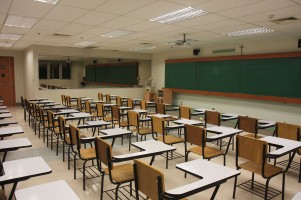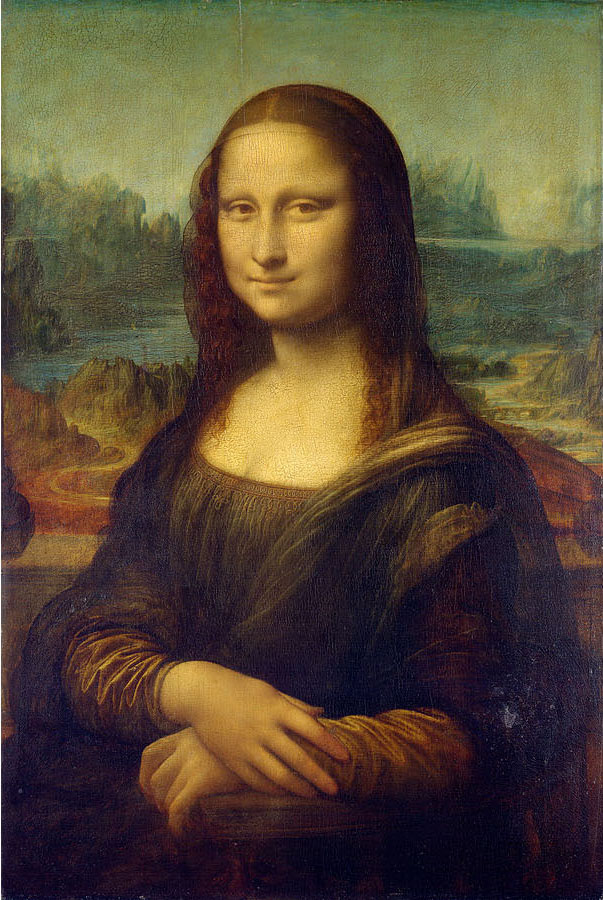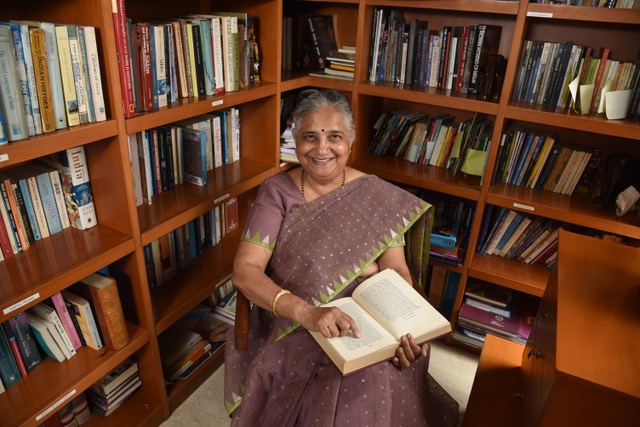The Crisis of Western Education and the Role of Philosophy
Article By Sabine Leitner
In the developed world, the standards of literacy, numeracy, general knowledge and behaviour are falling. Millions of young people have also become disaffected from school and, despite the fact that previous generations have fought hard to make what was once a privilege of the rich accessible to all, do not see much point in formal education. In the U.K. for example, the figures of truanting have been going up for years and the problem has become so bad that the government is paying the most disaffected students in order to keep them in school and away from the streets.
Governments are under intense public pressure to be seen to be tackling these problems and the last 10 years have seen more changes to the educational system in Europe than any other decade. But none of these remedial plans has so far reversed the trend and teachers are becoming tired of constantly having to apply new government directives that increase their workload but fail to produce the expected improvements.
The root of the problem is not a shortage of resources; government spending on education is in most cases consistently going up and modern schools display an astonishing array of high-tech equipment such as computers, broadband, interactive whiteboards etc., designed to help learning and to give everyone access to a vast pool of information. There is also no shortage of educational theories, studies, statistics, and the progress in science has brought a better understanding of the development of the human brain. So why is it that, despite the best ever material means and contrary to our belief in linear and continuous progress, we have reached this state?
The problem is also not only limited to state-run education, but equally extends to parents who are increasingly confused as to how to bring up their children. They are torn between liberal and authoritarian theories, afraid of causing lasting traumas or ‘imposing’ their views on their offspring, powerless against the external influences of TV and Internet and more exhausted and short of time due to demanding jobs than any other generation before. Afraid of actively doing harm, they have resorted to a passive attitude of as little interference as possible in the ‘natural’ growing up of their children, and there is an indisputable link between this attitude and the sharp increase in juvenile crime and misbehaviour.
It is not that previous generations necessarily had better parenting skills, but what they had was a common set of values and a general consensus as to how to bring up children. The underlying cause of today’s crisis is the lack of a clear and coherent view of education and the widespread disagreement on almost every educational issue. This disagreement goes far beyond the healthy competition of ideas that is necessary to create a positive dynamic for continuous improvement. It reflects a much deeper lack of unity and coherence. It reflects the crisis of identity, purpose and meaning of modern man. We no longer know who we are, where we come from or where we are going. The crisis of Western education is therefore a reflection of the crisis of Western civilization.
The link between education and culture
The Encyclopedia Britannica defines education as “the transmission of the values and accumulated knowledge of a society”. This process is equivalent to the anthropological term ‘enculturation’, and of all living creatures man is the only one who really has culture. Animals are generally not known for possessing culture and being able to pass on abilities to future generations other than in a genetic way. But man has the ability to transmit immaterial concepts in a non-genetic way. Thus we can pass on knowledge, values and ideas that not only help us to survive but also enable us to master our environment with increasing sophistication.
The English cultural historian Christopher Dawson (1889 – 1970) wrote already in 1961 an almost prophetically named book called ‘The Crisis of Western Education’. In it he says: “Culture, as its name denotes, is an artificial product. It is like a city that has been built up laboriously by the work of successive generations, not a jungle which has grown up spontaneously by the blind pressure of natural forces. It is the essence of culture that is communicated and acquired, and although it is inherited by one generation from another, it is a social not a biological inheritance… Hence it is clear that culture is inseparable from education, since education in the widest sense of the word is what the anthropologists term ‘enculturation’, i.e. the process by which culture is handed on by the society and acquired by the individual… And the most important of all the processes by which culture is transmitted – the acquisition of speech – takes place before formal education begins.”
Culture is impossible without education and education without culture. How could we teach language without referring to our own language? How could we teach music without having recourse to the great works of music of our past? How could we teach science without knowing the great discoveries and achievements of our ancestors?
Some people think that culture is an imposition of a system of questionable beliefs on innocent children. It is true that every child is born without culture and that the process of enculturation will define to a great extent their way of thinking, their values, their behaviour and their beliefs. However, without enculturation man would remain in his primitive state and never develop reading and writing, art, science, music, etc. or a profound understanding and appreciation of the laws of the universe.
Culture is not an end but a means
It is important to understand that from a higher point of view, culture is not an end in itself. Ultimately, the purpose of enculturation is not merely to transmit and perpetuate a particular culture. The purpose of culture is to accelerate human evolution.
Through enculturation we learn in a few years of our lives what it took humanity to learn in thousands of years. It is only through culture that human beings can unfold their humanness. It is often said that the purpose of education is to ‘draw out’ (Latin: educere) the inner potential. Without culture and education we could not develop this potential. Cavemen had the same potential for reading and writing, science and art as their modern descendants. But the lack of an adequate environment generally prevented them from developing these skills. An external impulse is always necessary in order to develop our inner potential. Like a seed that has the potential of growing into a tree, but cannot do so without the right environment and the external stimulus of water and light, so human beings need the right environment (culture) and external impulses (education) to develop their potential. We do not develop speech without an external model of speech to copy from, we cannot develop love without experiencing love and we would not even walk upright as we are designed to do if we grew up among animals.
Education is more than the sum of its parts
We have to accept that to educate will always be a subjective process. To a certain extent it unavoidably means to transmit to others our own point of view, our own way of thinking, our own values and our own beliefs. Since no individual and no civilization is perfect it also means to pass on our own limitations, our own defective ways of thinking, our own prejudices and our own wrong assumptions. The more unsure we become about our own values and the more we question our own role in history, the more insecure we become about transmitting our beliefs to our children. After all, we do not want to perpetuate defective norms and patterns.
However, although it is true that human beings will not only be immensely enriched but also limited by their ‘inherited worldview’, we need to understand another phenomenon: the human potential to go beyond inner and outer limitations, to adapt to new circumstances and to create new and better forms of civilization. If human beings did not have this ability, there would never have been any progress. The rich tapestry of human history is full of examples that we are not simply satisfied with what we have received from our parents. On the contrary, we have the need to conquer new dimensions, discover new paradigms and continuously improve our circumstances.
We want to evolve; we are not simply robots that are fed with specific information. We are alive and want to grow. And thus, the most important matter is not so much what we teach and transmit. What matters far more is what we awaken in each individual. Cultural elements are not digital data, they are living elements with the power to awaken the dormant life-forces in the souls of human beings. Education does not mean to brainwash and programme children to continue along the lines of their parents but to awaken their own unique inner potential. Education is more than the sum of its parts because its effect will always be greater than its cause.
Understanding our Crisis
Every teacher knows that in order to give a good lesson he has to be clear about what he has to teach, what the purpose of the lesson is, what the outcome should be, what the best means are to reach these aims and what abilities and potential his students have. A lack of clarity about the objectives, a poor understanding of the subject and a half-hearted delivery would certainly lead to unsatisfactory results. The same applies to education in general. In order to provide a good education we need to be clear about the purpose of education, we need to have a profound understanding of history and culture, and a clear vision of the future. We also need to understand on a very deep level the nature of the human being and what qualities he needs to develop in order to cope with the challenges of the future.
The root of our modern crisis is that we cannot see these issues clearly any more and that we are no longer convinced of the truthfulness and superiority of the values that were for centuries at the heart of our own civilization. After all, in its name we committed horrendous atrocities, ranging from inquisition to genocide, imperialist conquest to the exploitation of other peoples, the pollution of the planet to the squandering of the resources of future generations.
These nagging doubts about the rightfulness of our culturally inherited beliefs are in direct relation to the crisis in education. What shall we pass on to our children? Which values are safe, tried and tested to serve as the foundation for a better and more just world tomorrow?
There are times in history when the inherited beliefs and values are not questioned, when cultural elements are passed on with the full ring of conviction that these ideas are true and in some way superior to those of other cultures. These times constitute the golden ages of every civilization, in which a certain worldview has produced a peak in every field of human activity.
However, civilizations follow the same pattern as living beings, they rise and fall, they are born and they die. The breakup of a civilization is usually followed by a period of transition, a Dark Age or Middle Ages. This in turn is followed by a Renaissance, i.e. a rediscovery of cultural elements of former civilizations that provide the foundation of a new civilization and lead to the ‘re-birth’ (re-naissance) of the spirit and the life force that will give shape to a new culture and civilization. After the fall of the Roman Empire, for example, Europe entered the so-called Dark Ages (Early Middle Ages). The rediscovery of many writings of Greek, Roman and Egyptian origin in the period we later called the Renaissance completely changed the medieval worldview and introduced the Modern Age with its unprecedented scientific discoveries and technological progress.
There is a growing number of modern authors and academics (see bibliography) who believe that Western civilization is in decline and that we are about to enter a new Dark Age. The symptoms of decline of any organism are usually a general weakening, disintegration, the loss of flexibility and adaptability, and at the same time a weakened ‘immune system’ against foreign elements.
Our modern world displays many of these symptoms. By way of example: there is rampant and debilitating doubt about almost everything. Doubt regarding God (does He exist?), doubt regarding man (aren’t we all selfish beasts that cannot be trusted?), doubt regarding governments and politicians (they are all corrupt) and doubt regarding our abilities (we are so weak and the problems are so great). Even the last resorts of safe convictions, science and technology, have started to be shaken. Has science not failed to answer our innermost questions, has not the selfish application of technology caused many of our current problems, and has all the unprecedented progress of the last century not failed to make us happier and to make the world a better place?
Consequences
Since everything is in doubt and we are acutely aware that everything is relative, we are not sure what to teach to our children. The once commonly accepted purpose of ‘character building’ came to be seen as ‘indoctrination’; therefore we react by confining education to intellectual training only. Political correctness forbids us to make value-judgments, therefore we hesitate to give any moral guidance. Since the only commonly accepted criterion left is the utilitarian value of every subject, formal education has started to concentrate more and more on vocational training and to see the main purpose of education as equipping people with the necessary skills for the job market. As a consequence, modern education has become increasingly sterile and devoid of those ‘living elements’ that are needed to stimulate the other aspects of human nature.
The negative results of this development are becoming more and more apparent. An education that mainly imparts information fails to meet the needs of the human personality and is a major cause of young people becoming disaffected with school. The utilitarian orientation of the syllabus causes children to become alienated from their own culture. The majority of young people in the West know so little about Christian symbolism, Greek mythology, classical music or the major works of their own literature (all subjects considered to be of little utilitarian value) that they have no access to the great works of art of their own culture. They are cut off from their roots because they lack the means to appreciate and interpret the cultural elements they have inherited. The emphasis on scientific and technical training does not develop in individuals the inner resources to meet the challenges of life. The absence of clear moral guidance leaves students vulnerable to other forces that have the potential to influence their character and contributes to a deterioration of standards of behaviour.
The Role of Philosophy
Every crisis is a turning point and leads to a period of re-assessment. This re-assessment is essentially of a philosophical nature. It makes us question the most fundamental aspects of our existence. At its heart is the question of the nature of the human being and the purpose and meaning of our lives.
The modern way of thinking tends to look for quick solutions on the level of the problem, in other words to treat symptoms rather than causes. This ignores the fact that very often problems have deeper underlying causes. We are mostly unaware of how much almost every human issue is related to deeper philosophical questions.
In order to gain a clearer idea about the purpose, means and outcome of education, we inevitably need to answer questions about human nature, life and the values that underpin our civilization. Otherwise we will be forever lost in the currents of opinions, theories and treacherous statistics without any real point of reference. We will also be unable to bring about real change and improvement and only replace one quick-fix strategy with the next, groping in the dark as to where we are actually going. Without a clear vision for the future born out of a clear understanding of the problems, governments will only be able to respond passively to the strongest currents of opinion instead of showing leadership.
It is understandable that a utilitarian society used to seeing everything from an economic point of view will naturally be unable to see the value of philosophy. It has reduced philosophy to the role of providing arguments and training the intellect to think critically. It has forgotten that philosophy is originally the ‘love of wisdom’ and that its purpose is not to question everything but to reach a clearer understanding.
Philosophy is an inherent human characteristic. It is the need to ask ‘why’, based on the intuition that there are answers to be found. This desire to understand has been the driving force of every human activity and given rise to all the achievements and discoveries of mankind. Philosophy is much more than intellectual activity alone, it is an active attitude towards life, the attempt to unite thinking and acting, and to express and live actively what we know.
Philosophy may not lead to the quick, verifiable and measurable products we are so accustomed to expect. But it can produce a profound transformation and therein lies its value.
The future will depend on the development of the human being
Today we attach a lot of importance to economic and technological development. We think that with continued progress in science and increasing knowledge about our material world we will be able to solve all our problems. But most of our problems are not due to technological failures or a lack of knowledge; most of our problems are due to our human imperfections and what we need more than anything else is the development of the human factor – the unique potential that lies within each individual.
It is very important that we understand that highly trained people with excellent literacy and numeracy skills and a vast general knowledge are not necessarily better human beings. Nor are they necessarily happier and more fulfilled than others and there is no guarantee that they will use their greater power and influence in society wisely. After all, Hitler’s engineers at Auschwitz were intelligent and highly trained individuals.
Rather than more knowledge, more money and more technology, we need more wisdom. Wisdom is not the same as knowledge; it lies in the use we make of knowledge. Modern man is in the position of causing more serious harm and destruction than any other previous generation. The more powerful our means become, the more potentially disastrous the combination of a developed intellect and selfish greed will be. We need human beings who will use their knowledge and their skills not only for their own benefit but also for the benefit of others who are less fortunate. This is no longer a question of the survival of a particular culture; this is about the survival of humanity.
It becomes clear that we need an education that goes beyond the imparting of knowledge and the development of intellectual capacity. We need an education that can awaken and develop our other human faculties like love, compassion, imagination, intuition, will power, perseverance and any others that are capable of helping us to overcome our lower nature.
How can we awaken this potential? Through what has always been regarded as the most powerful means of education: clear ideas and living example.
“Education is… a journey in the infinite, a participation in
the movement of the universe, a living in timelessness. Its purpose is not
to enhance particular abilities; rather, it helps us to give meaning to our lives, to interpret the past, to be fearless and open toward the future.”
Hermann Hesse
Image Credits: By Malate269 | Wikimedia Commons | CC BY SA- 2.0
The entity posting this article assumes the responsibility that images used in this article have the requisite permissionsImage References
By Malate269 | Wikimedia Commons | CC BY SA- 2.0
Permissions required for the publishing of this article have been obtained
Article References
J. A. Livraga: “Educación permanente para una nueva formación, conferencia 1976, Perú Encyclopedia Britannica 2002 edition The Crisis of Western Education, Christopher Dawson, Franciscan University Press, Steubenville, 1989 Artikel: “Auf dem Weg zu einem neuen Mittelalter” aus: Umberto Eco, Über Gott und die Welt, München 1985, Carl Hanser Verlag.





This piece is striking. As we all “shelter in place” for the next eight to twelve weeks, it is clear that our culture and educational systems were in need of a ‘dark age’ and a regeneration. I do not mean to imply that society will be healed of its ailments after this pandemic passes; in fact, I believe that this is just the beginning. Philosophy and education are essential to this positive transformation, and I support your ideas.